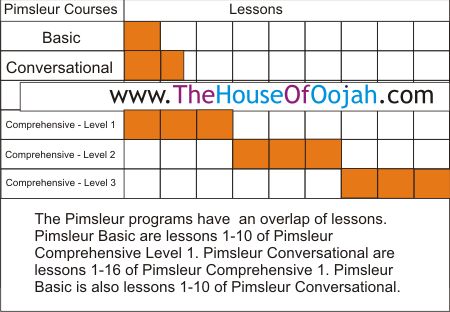Pimsleur Comprehensive French Level 1 - Discount - Audio 16 CD
Pimsleur Comprehensive French Level 1Get other Pimsleur Comprehensive French click hereGet other French Language audio click hereComprehensive French I includes 30 lessons of essential grammar and vocabulary -- 16 hours of real-life spoken practice sessions -- plus an introduction to reading.
Upon completion of this Level I program, you will have functional spoken proficiency with the most-frequently-used vocabulary and grammatical structures. You will be able to: * initiate and maintain face-to-face conversations,
About the French Language French is a Romance language originally spoken in France, Belgium, Luxembourg, and Switzerland, and today by about 350 million people around the world as either a native or a second language, with significant populations in 54 countries. French is a descendant of the Latin of the Roman Empire, as are languages such as Spanish, Italian, Catalan, Romanian, and Portuguese. Its development was also influenced by the native Celtic languages of Roman Gaul and by the Germanic language of the post-Roman Frankish invaders. It is an official language in 31 countries, most of which form what is called in French La Francophonie, the community of French-speaking nations. It is an official language of all United Nations agencies and a large number of international organisations. Per the Constitution of France, French has been the official language since 1992 (although previous legal texts have made it official since 1539, see ordinance of Villers-Cotterêts). France mandates the use of French in official government publications, public education outside of specific cases (though these dispositions are often ignored) and legal contracts; advertisements must bear a translation of foreign words. In addition to French, there are also a variety of regional languages. France has signed the European Charter for Regional Languages but has not ratified it since that would go against the 1958 Constitution. The majority of French words derive from Vulgar Latin or were constructed from Latin or Greek roots. There are often pairs of words, one form being popular (noun) and the other one savant (adjective), both originating from Latin. Example: * brother: frère / fraternel < from Latin FRATER The last example, Saint-Étienne/Stéphanois, illustrates common practice for gentilics throughout France. In some examples there is a common word from "vulgar" Latin and a more savant word from classical Latin or even Greek. The French words which have developed from Latin are usually less recognisable than Italian words of Latin origin because as French developed into a separate language from Vulgar Latin, the unstressed final syllable of many words was dropped or elided into the following word. The French counting system is partially vigesimal: twenty (vingt) is used as a base number in the names of numbers from 80–99. The French word for eighty, for example, is quatre-vingts, which literally means "four twenties", and soixante-quinze (literally "sixty-fifteen") indicating 75. This reform arose after the French Revolution to unify the different counting system (mostly vigesimal near the coast, due to Celtic [via Basque] and Viking influence). This system is comparable to the archaic English use of score, as in "fourscore and seven" , or "threescore and ten". Belgian French and Swiss French are different in this respect. In Belgium and Switzerland 70 and 90 are septante and nonante. In Switzerland, depending on the local dialect, 80 can be quatre-vingts (Geneva, Neuchâtel, Jura) or huitante (Vaud, Valais, Fribourg). Octante had been used in Switzerland in the past, but is now considered archaic. In Belgium, however, quatre-vingts is universally used.
|

 0 Items (Empty)
0 Items (Empty)








 (Custom).png)
